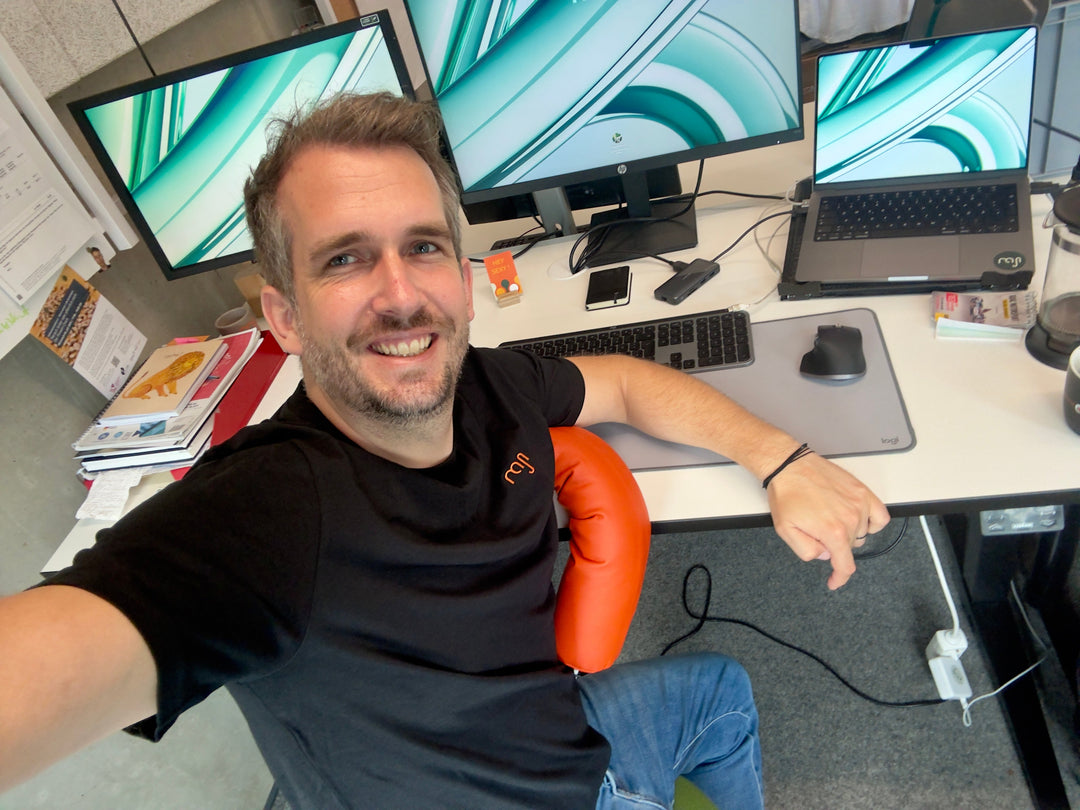Stress Relief After a Long Workday: A Feel-Good Routine

Stress management after a long day at work: Your feel-good routine
Have you worked your way through meetings, deadlines and to-dos on a workday and still haven't finished?
At the end of the day, all you want to do is lie down on the couch in front of the TV, trying to switch off and unwind. In the evening, your thoughts continue to revolve around unfinished tasks, causing your body to tense up. Adding to the stress is tension in your neck and back, which you'll feel for the next few days. When these days become frequent or even regular, the stress usually has consequences, and your pain can become chronic, which also affects your mental health.
Why early stress management is so important
Stress isn't always bad. It helps us stay productive in hectic situations. But when your body is constantly on alert, it has long-term effects on your health. Chronic stress can lead to sleep problems, cardiovascular disease, and a weakened immune system. It also leaves its mark on your mental health: irritability, exhaustion, and the feeling of being constantly overwhelmed are just some of the consequences.
The good news is:
However, you can do something about it and consciously structure your evening routine to help your body wind down and relax.
1. Conscious end of work: Stop the carousel of thoughts
One of the most important steps is to actively end your workday. Before you head home, review your appointments for the next day as a final task so you know what to expect. Then, close your laptop and shut down all devices, tidy up your workspace, and mentally say goodbye to any outstanding tasks.
2. Exercise as a balance
Once you've consciously finished your work, consider a regular ritual that you'll repeat every day after work. After a long day of sitting, exercise is the best way to relieve tension and release stress hormones. A short walk in the fresh air or a few stretches is a great idea. Keep an eye on our blog for more information; we'll be featuring the favorite exercises of the therapists at Rhöntherapie and the Ergotherapie Therapiezentrum Alte Brauerei .
3. Find your feel-good routine
Try to use the evening for yourself and relax. Find out what really helps you in the evening. For some, it's a hot bath; for others, it's a book or a delicious meal. The important thing is to consciously take time for yourself. Even small rituals, like a cup of tea or a calming playlist, can help you unwind.

4. Digital Detox: Less is more
We're all constantly surrounded by screens, both at work and in our private lives. We want to stay connected with others or try to distract ourselves with various social media platforms. However, all of this adds up to even more sensory input, leading to sensory overload and actually making us less happy. Try putting your phone away in the evening and focusing on analog activities. The good thing is: you're allowed to miss things sometimes.
5. Sleep as a source of energy
Restful sleep is essential when it comes to managing stress and exhaustion. The body needs 7–9 hours to go through all phases. Deep sleep, during which your body recovers and regenerates, is particularly important. Therefore, plan a fixed time for going to bed and stick to it.
Conclusion: Only your well-being counts
Stress is a part of everyday life for many of us, but it should never be underestimated. The long-term consequences, both for your body and your health, can limit your daily life. There's a beautiful saying that holds a lot of truth:
"Outward posture equals inner attitude."
That's why it's important to integrate relaxation into your daily routine. Whether through exercise, breathing exercises, or a conscious end to the day.
Don't forget: stress management isn't a luxury or a "nice to have," but a necessity for your health. Take the time to find out what's really good for you. Every step toward reducing stress is a step toward a better quality of life and more energy.







Leave a comment